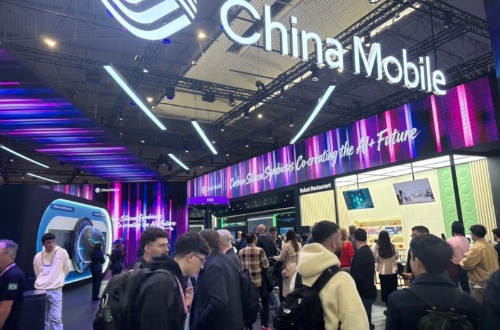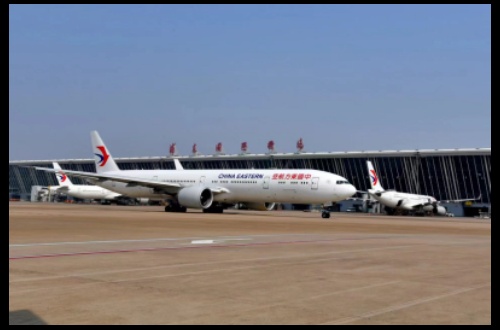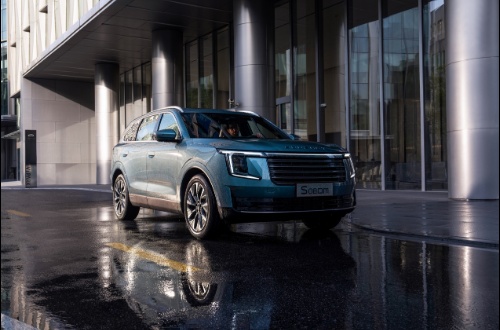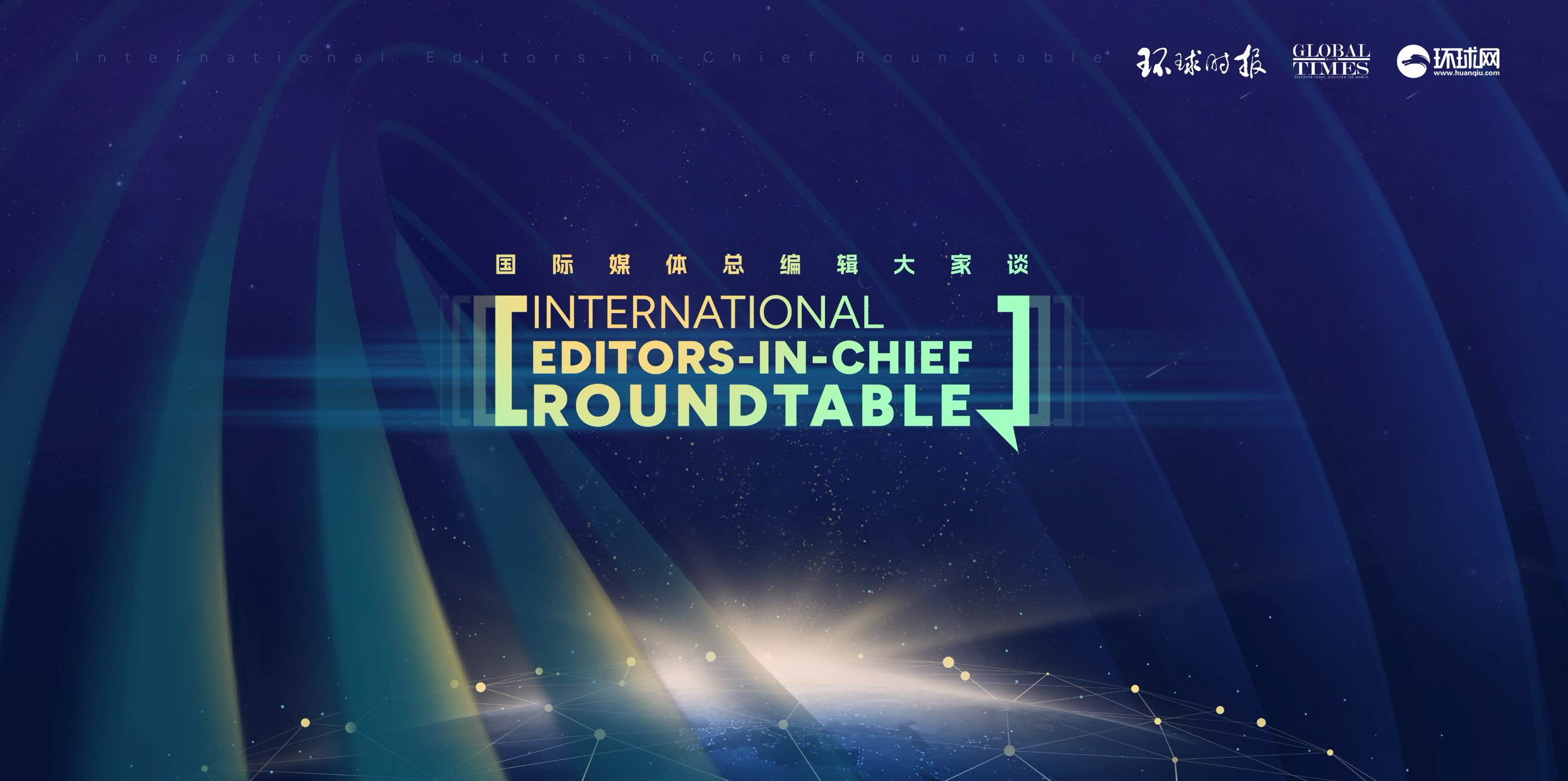Newest
-

Inside MWC 2026: See How China Mobile Leads the Tech Innovation Wave
-

China Eastern Airlines Announces Comprehensive Upgrade to International Route Network in 2026
-

SOUEAST S08 DM Pre-sale Opens in the UAE:"Motorsuite" Redefines Quality Travel
-

iCAUR Makes Strategic Entry into the Middle East: Announcing V27's Global Launch in UAE
An Alternative Hope Beyond Western Model: International Media Leaders Shine Spotlight on Global Significance of Chinese Modernization
 2025-05-09
2025-05-09
Chinese modernization has opened up a completely different path, offering a new hope and option to the Global South, pointed out global media executives at the fourth session of the International Editors-in-Chief Roundtable held in Beijing on April 15.

Jointly hosted by Global Times and Global Times Online (Huanqiu.com), the fourth session of the roundtable series was themed "Chinese Modernization and a New Model for Human Advancement". It brought together senior media executives from China, Georgia, Liberia, Zimbabwe, and other countries.
Participants engaged in in-depth discussions on Chinese modernization and civilizational exchanges and mutual learning, sharing insights into the new pathway Chinese modernization offers to the world and the media's role in promoting dialogue among civilizations.
Breaking Myth: An Alternative Hope Beyond Western Modernization
For decades, the idea that "modernization equals Westernization" has dominated global discourse. However, this approach has proven problematic for many countries that adopted Western models, as they have faced economic stagnation and social unrest, media executives said at the event.
Zhang Wei, Deputy Editor-in-Chief of Global Times, noted that Western-style modernization often leads to economic monopolies, exploitation, oppression, and entrenched social hierarchies.
The U.S. once promoted policies like "market omnipotence" and the "Washington Consensus" in Latin America, resulting in widespread issues such as the middle-income trap, the resource curse, and the Tacitus trap, ultimately reducing many nations to economic dependencies, he said.
In contrast, Zhang emphasized that Chinese modernization has charted a fundamentally different path, offering Global South nations an alternative model that marks a significant innovation in both modernization theories and practices.
Other participants also shared their perspectives on Chinese civilization. Francis D. N. Pelenah, Jr., Director of the News Department at Liberia Broadcasting System, noted that in many countries, modernization often remains little more than theoretical rhetoric or political slogans, whereas China has found a pragmatic, leading path.
"The journey of Chinese modernization is redefining the global understanding of progress," said Monica Mpambawashe, Managing Editor of Zim Now. ,
She stressed that while China's path is not a one-size-fits-all solution for African countries, it demonstrates that viable alternatives to the Western model exist.
A Shared Opportunity: China's Path of Open Development
Chinese modernization has, from the outset, prioritized collective progress, according to media leaders at the event.
"As Chinese leaders put it, the modernization we are pursuing is not just for China alone, but for all developing countries through our joint efforts," said a participant.
Responding to international media's concern about whether China can truly share its development opportunities, Liu Hong, Deputy Editor-in-Chief of Xinhuanet, highlighted China's commitment to opening up. "When you treat China as a friend and partner, you also benefit from its development," he said.
Liu shared real-world examples of how China's opening up has directly benefited the Global South: African entrepreneurs learning from the e-commerce industry in the eastern Chinese city of Yiwu, known as the "world's supermarket," to lift communities out of poverty, and the Jakarta-Bandung High-Speed Railway, the first of its kind in Southeast Asia, built under the China-proposed Belt and Road Initiative (BRI).
It's widely believed that openness has become a hallmark of Chinese modernization. As China continuously expands its high-standard opening up, it is offering more benefits to the world, media leaders observed.
Catherine Gulua, Founder and Director of the Media Center MTAVARI, noted that China now grants unilateral visa-free entry to citizens of 38 countries and has extended the visa-free transit period for travelers from 54 countries to 240 hours.
She emphasized that these policies build vital bridges of cooperation and reinforce China's position as a preferred partner for global collaboration.
Global Significance: The Value of Chinese Modernization
From major infrastructure achievements like the China-Laos-Thailand and Hungary-Serbia railways under the BRI, to technological initiatives like Luban Workshops and the "Space Silk Road," China's modernization drive has contributed a wealth of public goods to the world, according to participants in the event.
Media executives applauded Chinese practices such as offering free exhibition booths at the China International Consumer Products Expo for least-developed countries, and dispatching agricultural experts to help African nations diversify their economies, noting that they demonstrated China's commitment to inclusive growth.
Zhang stressed that China's approach is fundamentally different from the concept of "civilizational hegemony." Rather than imposing its model, China shares its experience to empower other Global South nations to advance modernization and tackle global challenges.
True empowerment, Zhang said, lies in inclusive, mutually beneficial cooperation that leads to shared development and prosperity.
Francis D. N. Pelenah, Jr. added that China's development since its reform and opening up has left a profound mark on global affairs. Strengthening ties between China and the Global South have eased the dependency syndrome often perpetuated by former colonial powers.
Pelenah emphasized that China has emerged as a leader in the new global order, giving Global South countries a stronger voice in international governance and paving the way for a more multipolar world.
From his perspective, nations must learn from China and explore modernization paths centered on human development, instead of blindly replicating the troubled Western model.
Looking Ahead: Sharing the Story of Chinese Modernization
In a world afflicted with increasing global instability, the need to effectively share the story of Chinese modernization and promote cross-cultural dialogue has never been more urgent, media leaders pointed out at the event.
Liu offered three suggestions: First, share more stories of cultural integration; second, invite foreign social media influencers to experience China firsthand and leverage livestreams to bring China's vibrancy and progress closer to global audiences, thereby making complex cultural concepts accessible; third, respond decisively to bias.
Reporting on Chinese cultural elements like blue-and-white porcelain and hotpot should highlight shared cultural touchpoints to build resonance, he said.
When narratives like "Western civilizational superiority" arise, the media should counter with facts and broaden the range of global voices, he noted.
Liu emphasized that, as "cultural translators," the media's role is to make the unfamiliar relatable and turn confrontational topics into opportunities for dialogue and mutual understanding.
Catherine Gulua suggested expanding the scale of exchange activities, forums, and seminars, so as to provide more platforms for international partners to witness and share China's development achievements.
Gulua underscored that the media, as a bridge for people-to-people exchanges, plays an indispensable role in connecting societies and fostering mutual understanding among nations.
For more content, visit Huanqiu.com on X:
https://x.com/huanqiu_com/status/1920065016935649525?s=46
